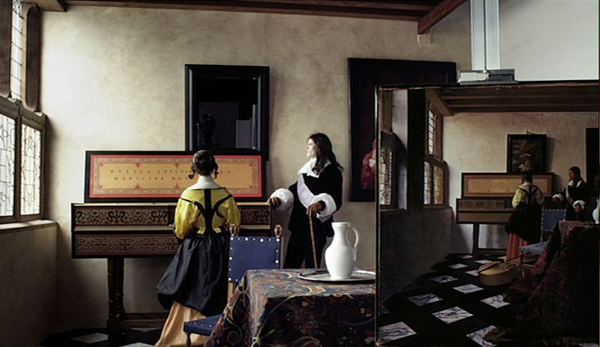Wednesday, June 18, 2014
Masterpiece
There is a break in the production of paintings at some point about 400 years ago.
Suddenly, there was a realism that "came into the picture" that cannot be explained in terms of pure artistic talent.
This is not a new idea but no one has, before, managed to construct a simple lens/mirror arrangement that can explain the sudden change.
In this film, we see the engineer, not artist, Tim Jenison, do just that. Taking ideas that the artist David Hockney had proposed, the engineer undertakes a project to actually paint a Vermeer, an artist who is working at this time, who achieved some of the startling newly realistic images. Using actual sets, people, costumes and even light that Vermeer might have done, we watch him "paint" his, Tim's, own "Vermeer". It is quite fascinating to watch.
Not only does he explore use of the camera obscura approach, then surprisingly discredit it, he devises a simple mirror/lens device which would do the job instead. He also grinds paints, finds canvas, searches costumes and architectural detail that would have been present at the original creation. He even molds the vase which is prominent in the picture.
I don't much care whether Vermeer "cheated" or not by using mechanics. The artist was able to harness technology, either this arrangement, or another to create a whole new realism in his paintings. Others most likely did the same. Artists copy one another's techniques. That is how new movements are formed.
I liked this film a lot. It had nice soft humor and was careful to take us along into the world of creating an illusion.
No surprise that the writers and directors and producers of this film are none other than the famous "magic" duo, Penn and Teller. The masters of illusion.
This is a solid 4 out of Netflix5. It could easily be watched several times just to see, I mean see with the eye, an important work of art unfold in a way that is likely to have really happened. Or something like it. It took Jenison a very long time to do the work. We also get a sense of the difficulty of doing a work of this complexity. It is not dashed off. Time and thought, contemplation, even of a copy, are essential.
